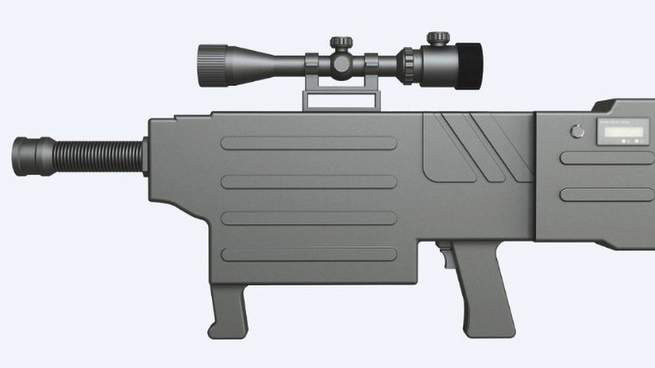INDIAN ARMED FORCES CHIEFS ON OUR RELENTLESS AND FOCUSED PUBLISHING EFFORTS

The insightful articles, inspiring narrations and analytical perspectives presented by the Editorial Team, establish an alluring connect with the reader. My compliments and best wishes to SP Guide Publications.

"Over the past 60 years, the growth of SP Guide Publications has mirrored the rising stature of Indian Navy. Its well-researched and informative magazines on Defence and Aerospace sector have served to shape an educated opinion of our military personnel, policy makers and the public alike. I wish SP's Publication team continued success, fair winds and following seas in all future endeavour!"

Since, its inception in 1964, SP Guide Publications has consistently demonstrated commitment to high-quality journalism in the aerospace and defence sectors, earning a well-deserved reputation as Asia's largest media house in this domain. I wish SP Guide Publications continued success in its pursuit of excellence.
Arrived - hand-held Laser Weapons
 |
By Lt. General P.C. Katoch (Retd) Former Director General of Information Systems, Indian Army |

China claims its newly developed ZKZM-500 laser assault rifle, a non-lethal weapon, can hit a target nearly a kilometer away. The prototype was built by ZKZM Laser, a technology company owned by the institute in Xian, who is now looking for partner in defence industry to commence large-scale production at a cost of 100,000 yuan (US$15,000) a unit. However, the "non-lethal" bit needs to be taken with a pinch of salt since the energy beam fired from the rifle can pass through windows and cause instant carbonization of human skin and tissues, though the beam is invisible to naked eye. In effect, hand-held weapons that can set fire to targets from long distances are no longer confined to science fiction. According to a Chinese scientist, the beam can "burn through clothes in a split second ... If the fabric is flammable, the whole person will be set on fire. The pain will be beyond endurance." These rifles are powered by rechargeable lithium battery pack similar to those found in smart-phones, and can fire more than 1,000 "shots", each lasting no more than two seconds. These laser assault rifles are ready for mass production and according to news reports, the first units are likely to be given to anti-terrorism squads in the Chinese Armed Police. The 15mm calibre weapon weighs three kilos (about the same as an AK-47), and has a range of 800m, and reportedly could be mounted on cars, boats and planes. But then it can be even more effectively used, perhaps in swarms of robots – both on ground and in the air.
Such weapons can also effectively used to neutralize hostage situation; firing through windows at targets and disabling kidnappers, while others rescue the hostages. With the laser beam being invisible, and producing no sound whatsoever, it would be difficult to gauge where the attack came from.. These could also be used in covert military operations. The beam is powerful enough to burn through a gas tank and ignites the fuel storage facility in a military airport. Technical data of the weapon was posted on Chinese Government website of 'Public Service Platform for National Civil-Military Integration'. The Chengdu Hengan Police Equipment Manufacturing Company, major hardware supplier for Chinese law enforcement agencies, also released the brochure of a laser "machine which has a range of 500m and it can fire several hundred shots per charge. The hand-held 'Defender' can damage radars, surveillance devices, communication cables etc. Given the lethality and misuse of such laser weapons China says these will only be given to Chinese military and police. However, China never follows what it says and has no compunctions about brazenly disregarding international norms for not using such weapons. Recently, the US government lodged a formal complaint that a "weapons-grade" laser device fired from the Chinese naval base in Djibouti had left two military pilots with minor eye injuries. In recent times, US forces operating in the Indian Ocean and the South China Sea have complained they have been subjected to an increasing number of laser attacks from Chinese military bases or vessels that look like fishing boats. Concurrently, there is also skepticism about existence and capabilities of laser weapons developed by China, but not without reason in 2015, China set up a two billion-yuan fund to develop compact, powerful laser devices that triggered concerns in the US and other Western nations.
The fact is that these compact devices can cause as much damage as large, truck-mounted laser cannons would have done. Ironically, no international protocols exist to regulate the development or use of this type of laser weapon; the UN Protocol on Blinding Laser Weapons, initiated in 1980 and signed by over 100 nations, focuses on earlier generation weapons and prohibits the use of those that could cause permanent loss of eyesight. Besides, China would not adhere to any international protocols anyway. China firing lasers from Djibouti and in Indo-Pacific should concern the world. What India must seriously take into account is not only the PLA and China's border divisions being equipped with laser weapons, but China will no hesitate to give these weapons to Pakistan as well as Pakistan-based terrorist organizations, even if selectively. Where PLA soldiers have been sighted on Pakistani posts across the LoC, equipping of the Pakistani army-terrorists for cross-border firing or attacks with these can have serious consequences, as casualties can be caused without warning and without even disclosing the direction of attack (s). The confluence of intelligence, technical reconnaissance, electronic warfare, cyber warfare and space warfare in PLA's Strategic Support Force is a deadly mix. Whether we admit or not, one of our Sukhoi fighter jet was downed in Arunachal Pradesh close to the LAC in May 2017 through silent Chinese action (as assessed by foreign analysts), ditto for our UAV that fell into Tibet in Doklam area, and China has also been interfering in our satellite launch and satellite operations. India needs to move rapidly much beyond DRDO's 'Laser Dazzler' for crowd control, whose capabilities are suspect since it has never been deployed even in J&K despite the claims of both hand-held and vehicle mounted version being completely non-lethal. 'Aditya', the 25-kilowatt vehicle mounted gas dynamic laser-based DEW system (technology demonstrator) under development to hit a missile in terminal phase at a distance of 5-7 km is yet to be operationalized. MoD had listed out the "Technology Perspective & Capability Roadmap" identifies DEWs and ASAT (anti-satellite) weapons as thrust areas over next 15 years, but where exactly are we today, and how does the government, MoD and MHA.in particular propose the deal with the above mentioned threat? Clearly there is much to be done, roping in the private sector and strategic partnerships. Merely relying on DRDO will keep increasing the capability gap vis-à-vis China-Pakistan exponentially, Pakistan having been subsumed by China.





